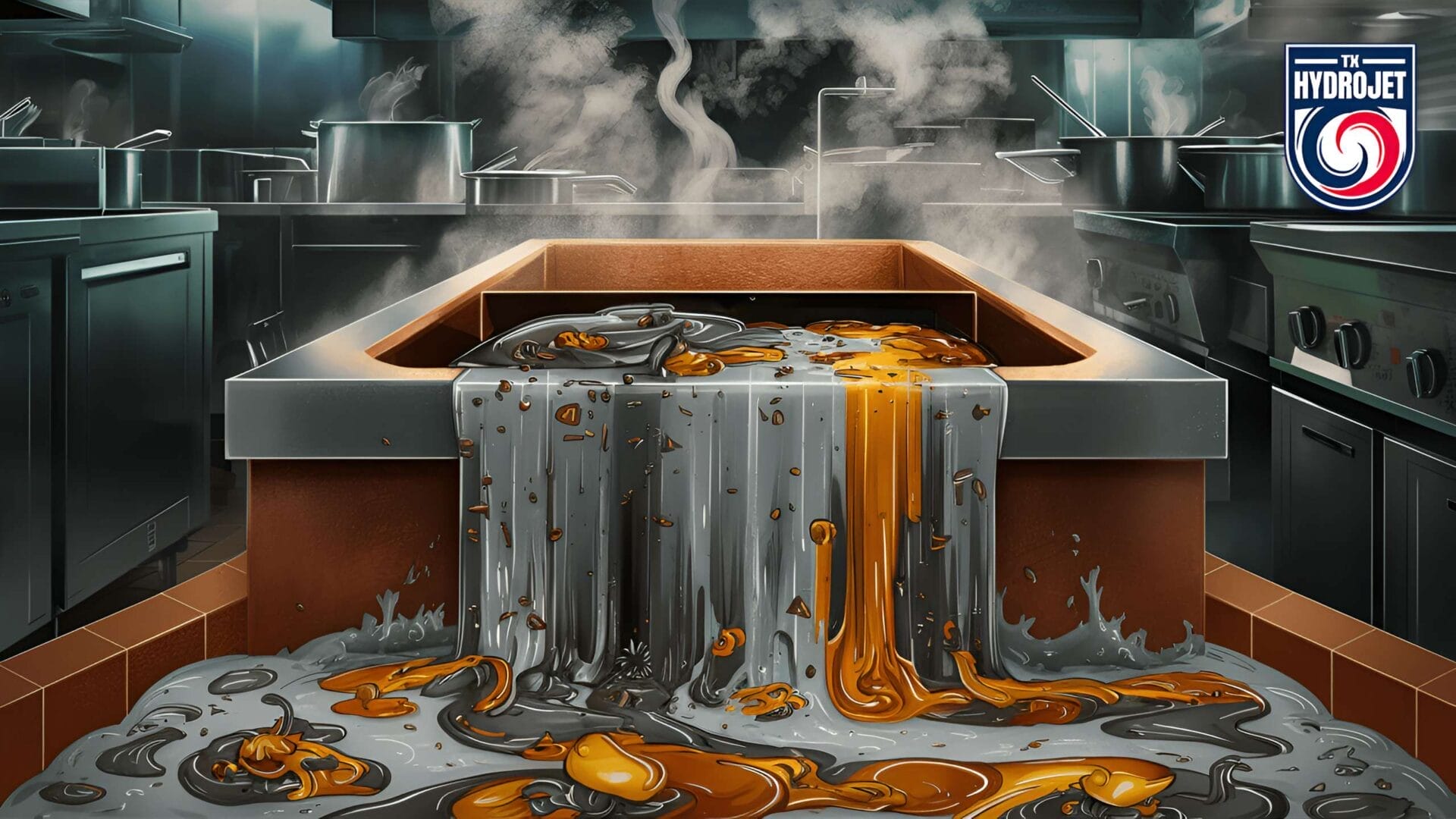What Does A Grease Trap Smell Like?

Grease trap smell resembles a mix of rotting eggs, sewage, and spoiled meat. It’s an unmistakable odor that combines rancid fat, decomposing food particles, and stagnant water into a uniquely foul aroma. The grease trap smell is pungent and can feel like a nauseating assault on your senses.
The primary cause of this offensive odor is the breakdown of organic matter trapped in the grease interceptor. As fats, oils, and food debris accumulate and decompose, they release sulfurous compounds and methane gas, creating that characteristic stench that can permeate an entire establishment.
What Causes Smelly Grease Traps?
1. Dirty Grease Traps
The most common cause of smelly grease traps is simply a lack of regular cleaning. When grease traps in restaurants are not emptied and cleaned frequently enough, they become breeding grounds for bacteria. These microorganisms feed on the accumulated fats and food particles, producing foul-smelling gases as a byproduct of their metabolic processes. Over time, this build-up can lead to an increasingly potent and unpleasant odor.
2. Broken P-Trap
A broken or improperly installed P-trap can contribute significantly to grease trap odors. The P-trap is designed to create a water seal that prevents sewer gases from entering the building. If this trap is damaged or dry, it allows these noxious gases to escape, exacerbating the smell problem. Regular inspection and maintenance of the P-trap are crucial for odor prevention.
3. Bad Ventilation
Poor ventilation can intensify grease trap odors by trapping the smelly gases within the space. Proper ventilation systems are essential for dispelling odors and maintaining air quality. Without adequate airflow, even minor odors from the grease trap can become overwhelming, creating an unpleasant environment for staff and customers alike.
4. Old or Faulty Grease Traps
As grease traps age, they may develop cracks, leaks, or other structural issues that compromise their effectiveness. These defects can allow odors to escape and make the trap more difficult to clean thoroughly. Older traps may also have design flaws that contribute to odor problems, making replacement with a modern, more efficient model necessary.
5. Overloaded Grease Traps
When grease traps are undersized for the volume of waste they receive, they can quickly become overloaded. This overloading leads to inefficient separation of fats and solids from wastewater, causing more rapid accumulation of odor-causing substances. Ensuring that your grease trap is appropriately sized for your establishment’s needs is crucial for odor control and overall functionality.
How To Get Rid of the Grease Trap Smell
1. Clean the Trap
Grease traps need to be cleaned every 1-3 months. Regular and thorough cleaning is the most effective way to eliminate grease trap odors. This involves removing accumulated fats, oils, and food particles, and thoroughly scrubbing the trap’s interior. For best results, establish a consistent cleaning schedule based on your trap’s size and the volume of waste it processes.
2. Run Hot Water Down Your Sink
Periodically running hot water down the sink can help to liquefy and flush away some of the accumulated grease and food particles. While this is not a substitute for proper cleaning, it can help maintain the trap between professional cleanings and reduce odor build-up.
3. Use Natural Deodorizers
Natural deodorizers like baking soda or white vinegar can be effective in neutralizing odors. These substances can help balance the pH in the trap, inhibiting bacterial growth and reducing smells. However, it’s important to use these sparingly and in conjunction with proper cleaning practices.
4. Call TX Hydrojet
When dealing with persistent grease trap odors, it’s time to call in the professionals. Grease interceptor cleaning costs vary based on the size of the trap and the level of grease buildup. If your restaurant is in Houston Metro, call TX Hydrojet, we are the Best Houston Commercial Plumbers. Our team has mastered the art of Houston Grease Trap Cleaning. and has everything required to clean your grease trap, identify any underlying issues, and provide effective solutions to eliminate odors.
We also recommend looking into our Houston Preventative Plumbing Maintenance Plans. Regular professional maintenance can prevent odor problems before they start, saving you time, money, and reputation in the long run. Don’t let grease trap odors affect your business – contact TX Hydrojet today for expert service and odor-free operations.


